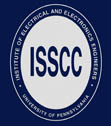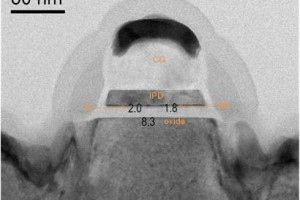EU navigation safety project Accseas has demonstrated automatic resilience against GPS jamming attacks in UK waters. The trials used data from eLoran, based on...
Device R&D
IBM designs 100Gbit/s ADC in Switzerland
Swiss researchers have worked with IBM to design a very high speed data converter which will operate at speeds up to 100Gbit/s.
ISSCC – Solid state circuits take centre stage
The International Solid State Circuits Conference is an important gathering for the electronic engineering industry, regarding systems-on-a-chip and solid-state circuits.
Fujitsu demonstrates 32Gbit/s data links between processors
Fujitsu Laboratories has developed a 32Gbit/s data transmitter and receiver with loss equalisation circuits, which it says can be used in the fastest data links between microprocessors
UKplc kindles Gbit/s optical comms research
“Imagine an LED array beside a motorway helping to light the road, displaying the latest traffic updates and transmitting internet information wirelessly to passengers’ laptops, netbooks and smart..."
Qualcomm develops MRAM with Imec
Magnetoresistive RAM (MRAM) is a non-volatile memory which could be a low leakage alternative to SRAM
Harvard makes twisted light device
A device which allows an optical detector to pick up on the rotation of a twisted light wave, called an optical vortex or vortex beam, has been developed by researchers at .the Harvard School of Engineering and Applied Sciences (SEAS).
IEDM: Smallest GaAs transistor
MIT is claiming to have made the smallest GaAs transistor. It is 22nm long, making it a candidate to replace silicon in computing devices, claimed co-developer Professor Jesus del...
IEDM: hybrid floating gate scales flash to 10nm
At the IEDM, Imec has presented an ultra-thin hybrid floating gate cell for future flash memory. "The results are an important enabler for further scaling of NAND flash technology towards...
Toshiba's MRAM could replace SRAM
Toshiba has developed a prototype memory element for a spin transfer torque magnetoresistive random access memory (STT-MRAM) that achieves the lowest reported power consumption, indicating that it has the potential to surpass the power consumption efficiency of SRAM as cache memory.
 Electronics Weekly Electronics Design & Components Tech News
Electronics Weekly Electronics Design & Components Tech News



